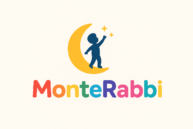It is very difficult to understand the world around us if we can’t get our ideas and thoughts across.
The problem with expressive language disorder is that children struggle not only in communicating their own information, but also in understanding what others are saying to them. This often leads to frustration for both the child and those who interact with him or her.
A receptive language disorder can make it hard for a person to learn new things, especially when they are verbally presented by someone else.
When a child has this type of disorder, he or she will find it much more difficult than most people do to follow instructions, comprehend verbal directions from teachers at school, and remember what was said during conversations with friends.
Receptive and expressive language disorders may be caused by hearing loss, developmental delay as well as brain injury; however, many times there is no reason why they occur at all other than being an inherent part of one’s genetic makeup. Children who have these disorders need extra help to communicate their needs and to be understood by others.
- What is receptive and expressive language disorder?
The term “receptive” refers to the ability to recognize written or spoken words.
“Expressive” on the other hand refers to a person’s ability to produce sounds, gestures, signs, writing in order for others to understand them. For expressive language disorder, it could be caused by one having a cleft lip, not understanding the language that was spoken to them and since they have a different language, they are unable to express themselves.
When there are problems with both of these skills it can be referred to as an expressive-receptive communication disorder (also called mixed receptive expressive disorders). This type of problem usually happen when someone has a problem understanding what they hear but also have trouble saying things clearly while speaking.”
- Treatment for receptive and expressive language disorder
To treat your kid with receptive or expressive language disorder, the speech language pathologist will first of all assess your child to know what is causing the disorder. They will evaluate whether the child has autism, general speech delay or apraxia. They will then advise you accordingly on the next steps that you need to take to have your child on the right track as far as their language needs are concerned.
- How to help your child with receptive and expressive language disorder?
Children with receptive and expressive language disorders find it difficult to understand what others are saying or express themselves. There are many ways in which parents can help their child improve these skills, such as:
- By playing games where they have conversations about topics that both of the players know a lot about, like an animal’s habitat. Some popular games include cause and effect, toys for nonverbal kids etc.
- Proper Care for your child is one way you can make sure they develop properly! The process may be hard at times but if you work together with them then things will get better over time.
- Talking nicely when children ask questions so that they don’t feel intimidated asking next time around – this part requires patience because some kids need more than just a little encouragement before feeling confident enough to speak up again!
- Socialization—Most of the times, kids learn language by associating with others. Have your kid go out to play with their peers so that they can collect words here and there
- Early intervention with a trained speech therapist is your best bet when it comes to dealing with expressive and receptive language disorders. If it seems hard to get one close to your home, you could use some online services to help your kid.

